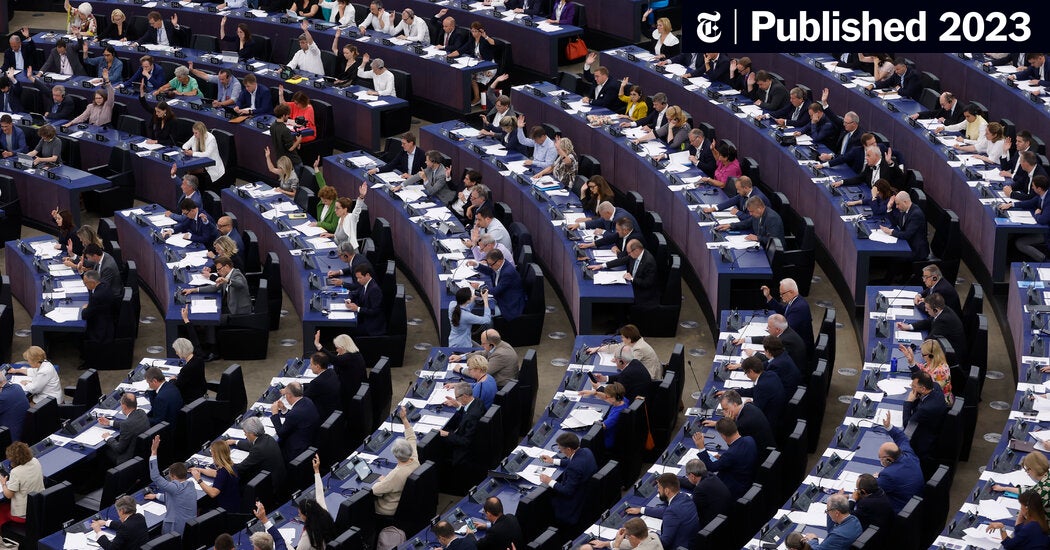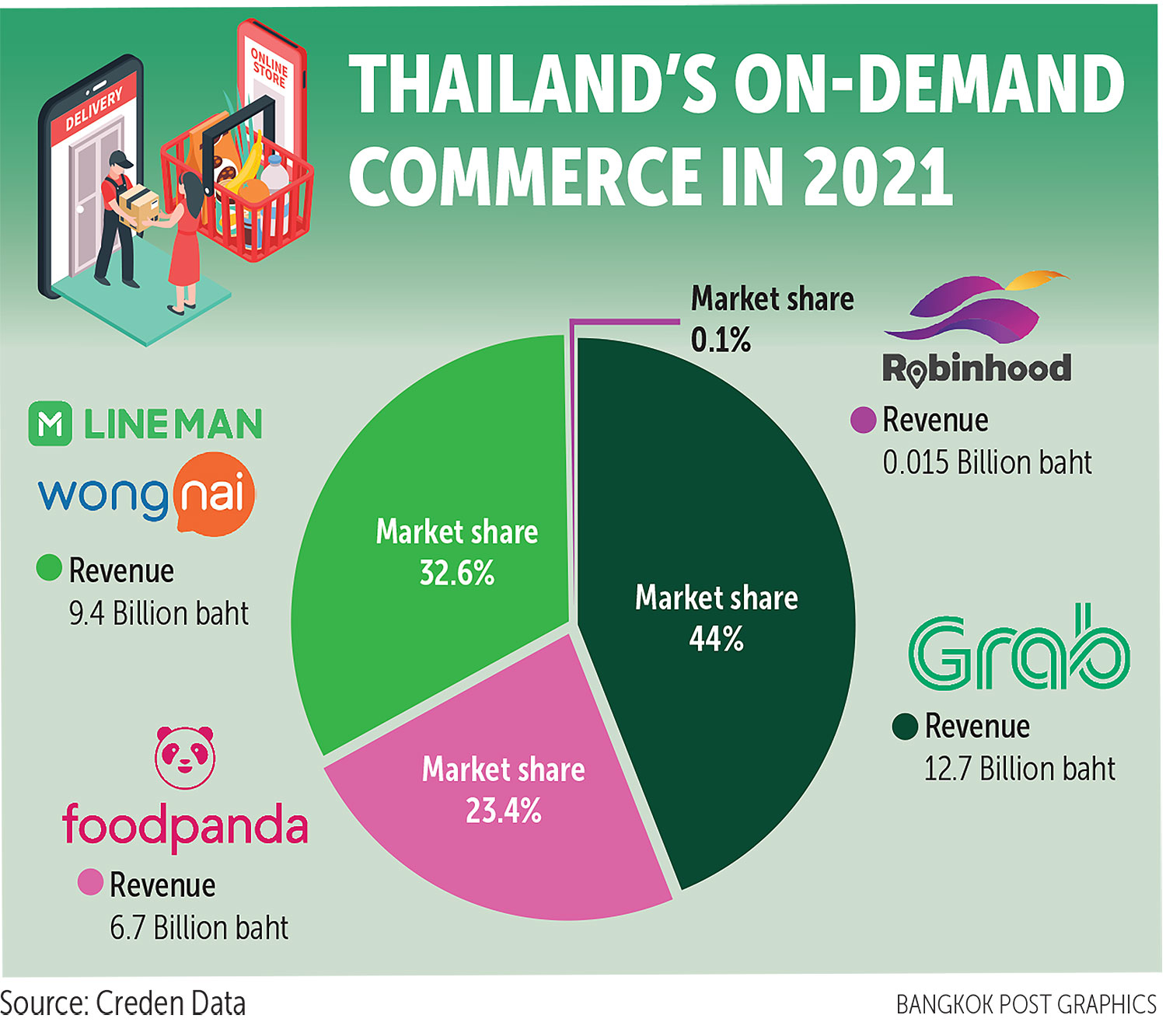The Trump Administration And The Future Of AI Regulation In Europe

Table of Contents
Transatlantic Regulatory Divergence on AI
The Trump administration's emphasis on lighter-touch regulation contrasted sharply with the EU's proactive approach, exemplified by the General Data Protection Regulation (GDPR). This divergence created uncertainty for businesses operating on both sides of the Atlantic, particularly those involved in AI development and deployment.
-
Differing approaches to data privacy: The GDPR's stringent data protection rules, including the right to be forgotten and the requirement for explicit consent, stand in stark contrast to the more laissez-faire approach prevalent in the US. This difference significantly impacts transatlantic data flows, forcing companies to navigate complex compliance requirements.
-
Algorithmic transparency and accountability: The EU has shown a greater emphasis on algorithmic transparency and accountability, pushing for explanations of how AI systems make decisions, particularly in high-stakes areas like loan applications or criminal justice. The US, in contrast, has been less focused on these aspects, leading to a disparity in consumer protection and trust.
-
Liability for AI-driven harm: Determining liability for harm caused by AI systems remains a contentious issue. The EU is exploring ways to establish clear frameworks for accountability, while the US approach remains less defined, leading to potential legal uncertainties for businesses.
-
Facial recognition technology: The contrasting approaches are vividly illustrated in the area of facial recognition technology. The EU has implemented stricter guidelines regarding its use, emphasizing ethical considerations and potential biases, while the US has seen a more fragmented regulatory landscape with varying approaches at the state and local levels.
The differing regulatory environments impacted transatlantic data flows significantly. Reports indicate a decrease in data sharing between the EU and the US during this period, hindering collaboration and innovation. Statistics on the volume of transatlantic data transfers before and after the GDPR's implementation further highlight the impact of this regulatory divergence.
Impact on European AI Development and Innovation
The regulatory differences significantly influenced the pace of AI development in Europe. While some argue that stricter regulations fostered innovation by prioritizing ethical considerations and building trust, others claim that they hindered the speed of development and deployment compared to the US.
-
Data sovereignty and the "Fortress Europe" approach: The EU's emphasis on data sovereignty, prioritizing the control and protection of data within its borders, could lead to a "Fortress Europe" approach, where data remains largely contained within the EU. This may limit access to large datasets crucial for training sophisticated AI models but also ensures stronger data protection.
-
Competitive implications for European companies: European companies may face challenges competing with their US counterparts, who benefit from a less restrictive regulatory environment, allowing for quicker access to larger datasets and faster deployment of AI technologies. However, European companies that prioritize ethical AI development could gain a competitive edge in certain markets that value data privacy and transparency.
-
EU policy initiatives promoting AI development: The EU has launched several initiatives aimed at promoting AI development, including the AI Act, which aims to establish a harmonized regulatory framework for AI within the EU. These initiatives show a commitment to fostering innovation while maintaining ethical standards. Investment data reveals a shift in AI investment towards Europe, spurred by regulatory certainty and a focus on responsible AI.
The Future of AI Regulation in Europe in the Post-Trump Era
The Biden administration's approach to AI regulation offers a more collaborative stance compared to its predecessor. Increased international cooperation on AI governance is likely, leading to potential convergence in certain areas.
-
Increased international cooperation: The Biden administration has signaled a willingness to engage in more substantial international dialogue on AI governance. This presents opportunities for increased collaboration between the EU and the US on AI regulation, potentially leading to greater harmonization of standards.
-
Global AI standards: International organizations like the OECD and the G7 are playing an increasingly important role in shaping global AI standards. Their guidelines and recommendations offer a framework for international cooperation and could pave the way for greater regulatory convergence.
-
Harmonization of EU AI regulations: The EU continues its efforts to harmonize its AI regulations through initiatives like the AI Act. This process is complex and involves balancing the need for a unified approach with the diversity of applications and sectors within the AI landscape.
The Biden administration's AI policy, as outlined in various executive orders and statements, showcases a commitment to responsible AI development, including ethical considerations and a focus on mitigating risks. This contrasts sharply with the Trump administration's less interventionist approach and signals a potential shift toward greater cooperation and harmonization with the EU.
Conclusion
The Trump administration's legacy on AI regulation in Europe is one of significant regulatory divergence, leaving a lasting impact on the transatlantic relationship and the development of the AI landscape within Europe. The stricter EU approach, embodied by the GDPR, created a distinct regulatory environment, influencing innovation, data flows, and the competitive landscape. While concerns exist about potential limitations on AI development within Europe, the emphasis on data protection and ethical considerations forms a strong foundation for responsible AI innovation. The Biden administration’s shift towards greater international cooperation offers a glimmer of hope for future harmonization.
The future of AI regulation requires careful consideration and international cooperation. Understanding the legacy of the Trump administration and its impact on the current state of AI regulation in Europe is crucial for navigating this complex landscape. Further research and informed discussion on the intricacies of AI regulation, particularly regarding the transatlantic divide, are essential to fostering a responsible and innovative future for artificial intelligence. Stay informed about the latest developments in the Trump administration's influence on AI regulation in Europe to effectively navigate this evolving field.

Featured Posts
-
 Hanoi And Hai Phong To Be Connected By New Luxury Train Service This May
Apr 26, 2025
Hanoi And Hai Phong To Be Connected By New Luxury Train Service This May
Apr 26, 2025 -
 Shedeur Sanders Nfl Draft Projection Cam Newtons Take And Ideal Team Fit
Apr 26, 2025
Shedeur Sanders Nfl Draft Projection Cam Newtons Take And Ideal Team Fit
Apr 26, 2025 -
 Europe Rejects Ai Rulebook Amidst Trump Administration Pressure
Apr 26, 2025
Europe Rejects Ai Rulebook Amidst Trump Administration Pressure
Apr 26, 2025 -
 The Ajax 125th Anniversary A Focus On Dam Safety And Security
Apr 26, 2025
The Ajax 125th Anniversary A Focus On Dam Safety And Security
Apr 26, 2025 -
 Trump And The Canadian Election A Study In Unexpected Political Unity
Apr 26, 2025
Trump And The Canadian Election A Study In Unexpected Political Unity
Apr 26, 2025
Latest Posts
-
 Bangkok Post The Fight For Transgender Equality Continues
May 10, 2025
Bangkok Post The Fight For Transgender Equality Continues
May 10, 2025 -
 Discussions On Transgender Equality Intensify Bangkok Post Reports
May 10, 2025
Discussions On Transgender Equality Intensify Bangkok Post Reports
May 10, 2025 -
 Experiences Of Transgender Individuals Under Trumps Executive Orders
May 10, 2025
Experiences Of Transgender Individuals Under Trumps Executive Orders
May 10, 2025 -
 Bangkok Post Reports On The Mounting Pressure For Transgender Rights
May 10, 2025
Bangkok Post Reports On The Mounting Pressure For Transgender Rights
May 10, 2025 -
 The Impact Of Trumps Presidency On Transgender Rights
May 10, 2025
The Impact Of Trumps Presidency On Transgender Rights
May 10, 2025
